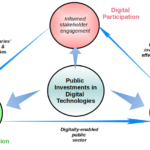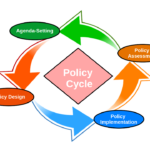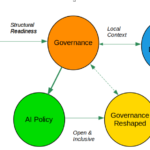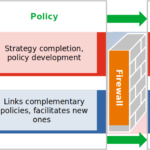DGG Dir prepared draft ToRs for the proposed work on the role of the State. Unfortunately, the draft completely ignored the work we have done in this regard. With this in mind, I submitted the following comments.
1. The TORs are still too broad and seem to miss one key point: what is the role of the state in promoting human development with all its DG components (inclusiveness, responsiveness and principles). We of course need to further narrow this down a bit more.
2. We are not operating in a vacuum here, nor are we starting from scratch. For the last 30 years or so we have been told that the role of the state is basically negligible or non-existent, etc. And many developing countries have been “guided” to implement policies to make sure this happens (and get loans and grants to do so)
3. While this sets of policies became mainstream in most developing countries, this was not the case for countries that became “emerging economies” since, particularly the Asian Tigers and more recently the so-called BRICs. This particular historical fact provided the basis for the emergence of the theory of the “Developmental State” which BTW was discussed in a few of the papers that were prepared for the Dakar CoP
4. The 2008 global economic crisis brought back to the forefront the role of the state an to a point put an end to the myth that the the state has a minimalist role in the development process. Nevertheless, we are still seeing today policies and schools of thought that although are more open to a more active role of the state, they seem to go back to the minimalist view. There is does an important debate going on in which UNDP can be “a leading contributor to policy debates” as said in the Administrator’s agenda for Change key messages.
5. UNDP’s main “clients” are indeed state actors; and the entry point for most if not all of our work are governments ,etc. as reflected by our SBAs in our client countries. So this topic should be central for our interventions in developing countries. If we have “in place a robust policy framework to guide programming, advise and other policy services” (quoting the same source as before) then we will have more solid policy options to offer to countries who are usually looking for new ways to tackle traditional development challenges. And this includes engagement with civil society and use of social networks, etc.
6. Recent research is pointing in at least two directions: one is the so-called democratic developmental state which relates to countries such as South Africa and Brazil (and thus South South cooperation); the other is less well defined but seems to be suggesting that the state does indeed have a key role to play on development (as reflected on the latest book published by Birdsall and Fukuyama, etc.. A summary of the Birdsall et.al arguments can be found here: http://iis-db.stanford.edu/pubs/23124/foreignaffairs_postwashingtonconsensus.pdf)
7. The UK is currently promoting a “new” version of the way in which the state should operate. It has been called by some observers, the “Wikipedia state” as the approach entails that people “volunteer” to run and provide some of the public services (health excluded) that used to be offered by the state (national and local).
8. I fully agree we need to also address some of the issues raise by Sarah. But on the other hand, we also need to carve a niche for this particular area if we are to be able to offer developing countries a solid option to theories and policies that others are pushing almost without any opposition, etc..
9. As you are aware, we have already completed some research on this topic, research that unfortunately was not used for the elaboration of the ToRs. The documents are here:
http://ictdegov.org/undpwiki/The_State_and_Development_-Literature_Review
http://ictdegov.org/undpwiki/State_and_Development_References
http://ictdegov.org/undpwiki/State_Development_and_ICT_References
I am attaching a PDF version of the document referenced in the first link.
Comments more than welcome.
Cheers, Raúl





